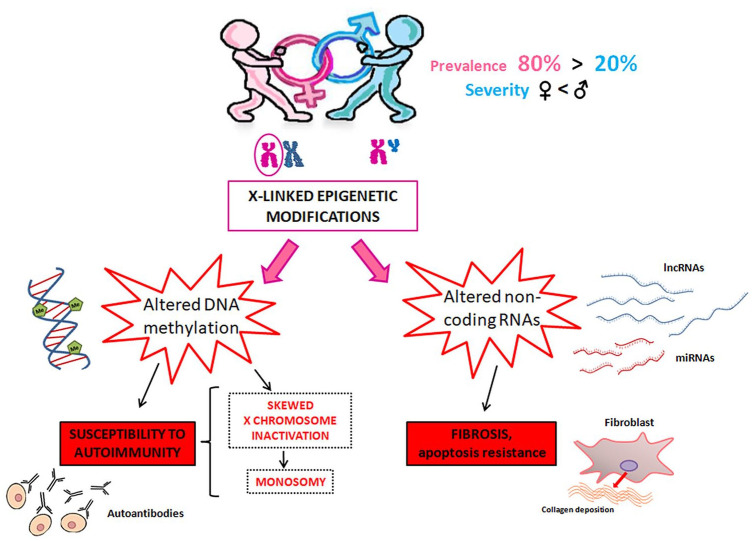Figure 2.
Schematic representation of the main X-linked epigenetic modifications in systemic sclerosis (SSc). SSc is characterized by a striking female predominance which is not reflected by a greater disease severity. Indeed, male SSc patients usually have a more severe prognosis compared to women. The causes of this gender imbalance have yet to be completely understood, but it appears that the X chromosome, which is known to contain the largest number of immune-related genes of the whole human genome, may play an important role in this sex-biased prevalence. X-linked epigenetic modifications reported to be altered and implicated in SSc pathogenesis are DNA methylation and non-coding RNAs. When altered, DNA methylation, which is known to play a central role in the X-chromosome inactivation in women, has the potential to reactivate genes typically silenced in the inactivated chromosome or inhibit genes normally expressed in the activated chromosome, thus fostering autoimmunity susceptibility and leading to SSc onset. In addition, a dysregulated expression pattern of X-linked non-coding RNAs (lncRNAs and miRNAs) has been shown to influence both the fibrotic and the apoptotic processes.

